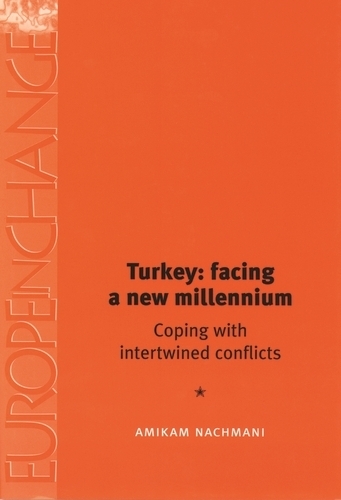
Turkey: Facing a New Millennium: Coping with Intertwined Conflicts
(Paperback)
Publishing Details
Turkey: Facing a New Millennium: Coping with Intertwined Conflicts
By (Author) Amikam Nachmani
Manchester University Press
Manchester University Press
1st October 2009
United Kingdom
Classifications
Tertiary Education
327.561009049
Physical Properties
Paperback
264
Width 156mm, Height 234mm
Description
Turkey's involvement in the Gulf War in 1991 paved the way for the country's acceptance into the European Union. This book, newly available in paperback, traces that process and in the first part looks at Turkey's foreign policy in the 1990s, considering the ability of the country to withstand the repercussions of the fall of communism. It focuses on Turkey's achievement in halting and minimising the effects of the temporary devaluation in its strategic importance that resulted from the waning of the Cold War and the disintegration of the Soviet Union, the skilful way in which Turkey avoided becoming embroiled in the ethnic upheavals in Central Asia, the Balkans and the Middle East, and the development of a continued policy of closer integration into the European and western worlds. Internal politics are the focus of the second part of the book, addressing the curbing of the Kurdish revolt, the economic gains made, and the strengthening of civil society. Nachmani goes on to analyse the prospects for Turkey in the twenty-first century, in the light of the possible integration into Europe, which may leave the country's leadership free to deal effectively with domestic issues. This book will make crucial reading for anyone studying Turkish politics, or indeed European or European Union politics. -- .
Reviews
"With EU enlargement now on the agenda interest in Turkish internal and external policies is bound to increase. Something balanced is needed - like this - to address the bad press that Turkey usually gets in the West. For the first time Turkey is likely to figure nearer the centre of the teaching agenda on European politics." --Paul Taylor, European Institute, LSE
Author Bio
Amikam Nachmani is Senior Lecturer in the Department of Political Studies, Bar-Ilan University, Israel
